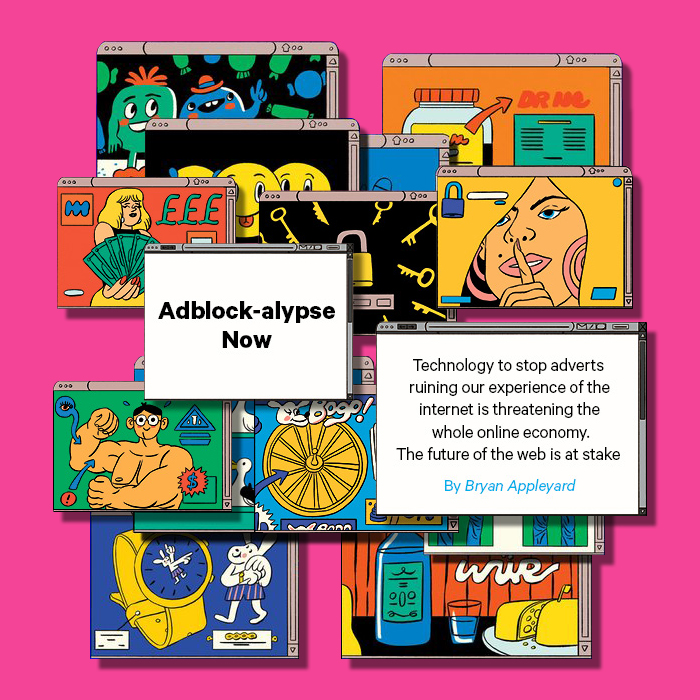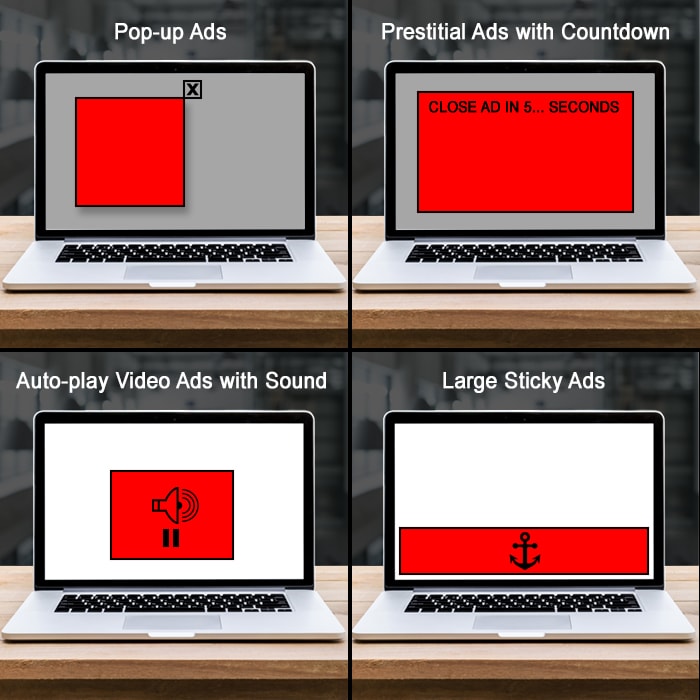The Sunday Times weighs in on Adblock-alypse

Bryan Appleyard of The Sunday Times throws in his ten cents on what we’ve been calling Cookie Armageddon for a couple of years now. It is a valiant effort, yet somewhat over-simplistic in approach, and its advertising bias does not really cover the broader impact of 3rd party cookie blocking, and how it’s actually a much needed measure to protect consumer privacy and shield consumers from malware and unauthorised use of their personal data.
Bryan starts his piece with the following intro:
This is not strictly speaking entirely correct. The ad-supported Internet is certainly a significant part of how the Internet works, but there are already alternatives to the overwhelmingly spammy nature of old-school eye-sore banners. Native Advertising has been around for a number of years now, and blends seamlessly in with many regular news feeds - as experienced on sites like Facebook.
There are a number of factors that are not touched on - the fact that many of these ads are a major source of malware and dangerous computer virus distribution. Also that advertisers are less than scrupulous in what they do with consumer data - selling on your personally identifiable information to a myriad of unsanctioned third parties - to do with as they please.
For users on mobile, ads consume a considerable amount of the user’s paid-for bandwidth, and eat up significant battery life. So ads are very resource-heavy, can carry malware and do generally impact users in several unsavoury ways. I recently clicked to watch a news video and was confronted with a 30 second pre-roll ad on women’s sanitary products - not really properly targeted advertising which is also a fault of most of these banner applications. Then there are those ecommerce sites you inadvertently click into, and end up getting advertising for whichever items viewed - across numerous websites for a week or more after.
The truth is there are already smarter and more user-friendly ways to target your consumer audience. Blanket spamming the web with eyesore banners is not really an acceptable approach any more, and nor are all those associated negatives highlighted above. This is actually a far more significant issue for the Internet at large in some ways, as so much functionality is still served up by 3rd parties. This means in turn that customer details are being handed over from pillar-to-post and you have no idea who ends up with your details or how they decide to abuse them - which is why privacy tools and ad-blockers are a healthy consumer essential.
Approaches like Buzzfeed’s clibckbaiting promotional listicles work really well. So it’s far from game over for the advertisers, they just need to adapt. The issue with banners has always been that they don’t sit in well with the natural order of things, and distract and disrupt consumers from their core missions. That is why Native Advertising is a much better way to go - it’s less intrusive, yet more impactful when properly matched with a consumer’s interests and preferences.
The Sunday Times article talks about how 90% of Google’s revenues are from advertising, but then neglects to say that the majority of those revenues come through Google’s own sites - Google Search, YouTube etc. which won’t be impacted, and where only the pure-play ad businesses like DoubleClick would be significantly affected.
Many media businesses will need to adapt, as the law is fully on the consumers’ side here - as a form of protecting consumers from potential harm. Court cases in Germany have already come out in favour of the consumers and privacy tools. Many media business owners refuse to wake up to the fact that their business environment is changing fast and they will have to adapt. Most aren’t even aware of how the web properly works, or how their own sites rely overly much on 3rd party plugins as a means to revenue generation - those will have to change too.
Apple’s last update to Safari and iOS 9 totally changed the game again - allowing even easier ad-blocking on a browser, and now several ISPs and mobile network operators are talking about filtering out advertising at source - because it takes up so much of the bandwidth. Those who concentrate their efforts on Apps think they may have dodged a bullet on that score, but if ISPs and network operators / carriers get increasingly more involved, then it won’t matter really how you package your ads - if they are of a certain flavour, they will be able to be blocked.
The Internet is most definitely here to stay, which includes the free / freemium part of the Internet too - the one that has been hitherto conventional ad-supported. And, just as television advertisers have seen the decline in interstitial advertising and have had to move to pre- and post-roll idents, endorsements and product placements, so will the Internet have to react in a similar manner. Like it or not, the ad-blockers / privacy-protectors / privacy tools - are not going away, in fact their use is growing circa 70% year-on-year. The UK lags a little behind Germany and Poland (circa 50%) in terms of total % of users who actively use ad-blocking / privacy tools, but the numbers everywhere are climbing all the time. Even several figureheads of the advertising industry admit that the banner onslaught has gone too far, and consumer confidence has been impacted to such a degree that change has to happen.

Did you find this content useful?
Thank you for your input
Thank you for your feedback
Upcoming and Former Events
Affino Innovation Briefing 2024
Webinar - Introduction to Affino's Expert AI Solutions - Session #2
Webinar - Introduction to Affino's Expert AI Solutions - Session #1
PPA Independent Publisher Conference and Awards 2023
Meetings:
Google Meet and Zoom
Venue:
Soho House, Soho Works +
Registered Office:
55 Bathurst Mews
London, UK
W2 2SB
© Affino 2024





















